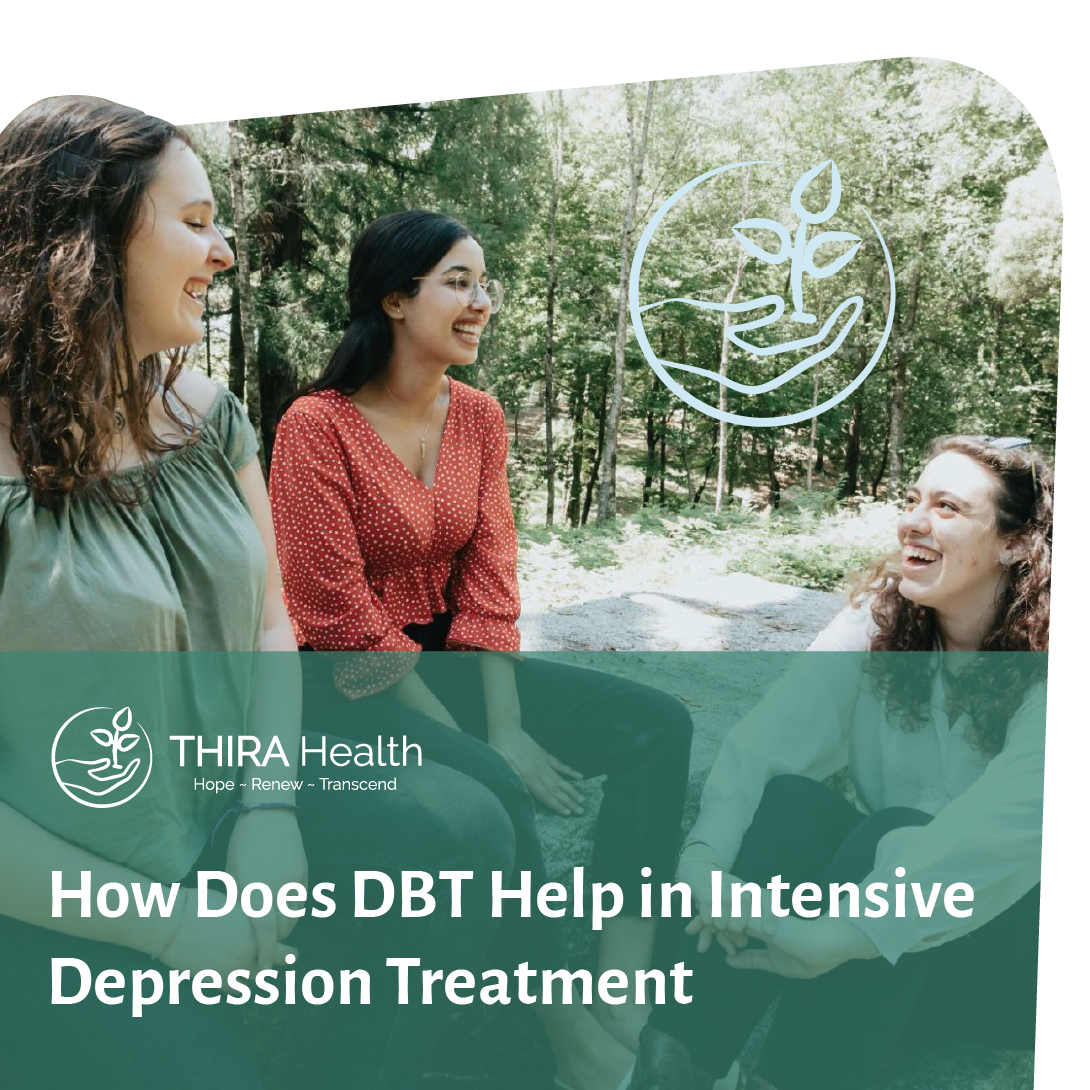There are many factors that can contribute to a “life worth living,” and many disciplines—including Dialectical Behavior Therapy (DBT)—offer direction to understand this idea. While all persons benefit from discovering what makes their life worth living, this concept, as popularized by DBT, was originally intended to help individuals living with borderline personality disorder (BPD) deal with many of their high-risk symptoms, namely suicidality. Moments of despair often prompt individuals to consider the meaning of life, what makes life worth living, and how they can create a life that feels meaningful and worthwhile.

Our blog today explores what we can learn about creating a meaningful life from DBT and how you can navigate through life with happiness and confidence.
Living a Meaningful Life
Building a life worth living may look vastly different from individual to individual. There are many building blocks and areas of life to consider that contribute to one’s overall sense of how their life is going.
Some people find meaning and fulfillment through work, hobbies, and other activities that align with their values and goals. Others find that relationships with friends, family, and loved ones are an important source of joy and purpose. A sense of connection to others and a feeling of belonging can also be important for many people.
Having good physical and mental health can also be essential for a life worth living. This includes taking care of one’s physical health through proper nutrition, exercise, and medical care, as well as maintaining mental well-being through activities such as therapy, mindfulness practices, and self-care.

For some people, spiritual or religious beliefs and practices may be an important source of meaning and fulfillment. Others may find purpose through volunteering, making a positive impact on their community, or working towards a cause they believe in.
Ultimately, what makes life worth living is unique to each individual, and may change over time. It is important for individuals to identify their own values, goals, and sources of meaning and fulfillment, and to work towards creating a life that aligns with these things.
DBT Therapy and a “Life Worth Living”
Dialectical behavior therapy (DBT) is a type of cognitive-behavioral therapy developed by Dr. Marsha M. Linehan in the 1980s. Central to the foundation of DBT is the idea of a “life worth living,” which refers to a state in which an individual is able to experience joy and satisfaction in their life, despite facing difficult challenges.
The concept of a “life worth living” is based on the idea that individuals with BPD, and other mental health conditions, often struggle with extreme emotional reactions, self-destructive behaviors, and a lack of sense of purpose or meaning in their lives. These challenges can make it difficult for them to find happiness and fulfillment, leading to feelings of hopelessness and despair.
Is the Idea of “Life Worth Living” Only for Those Considering Suicide?
While the concept of a “life worth living” is central to DBT, it is not specifically related to suicidal thoughts or behaviors. DBT was originally developed to treat individuals with borderline personality disorder (BPD), who are at higher risk for suicidal thoughts and behaviors. However, DBT has since been adapted to treat a variety of other mental health conditions, and the concept of a “life worth living” is relevant to individuals with a range of mental health challenges.
While suicidal thoughts and behaviors can be a sign of severe distress and may be a focus of treatment in DBT, the concept of a “life worth living” is not solely related to suicide prevention. Rather, it is about helping individuals create a life that is fulfilling and meaningful, regardless of the challenges they may face.
Goals of DBT Therapy
In DBT, the goal is to help individuals develop skills and strategies that enable them to create a life worth living, despite the challenges they may face. This involves developing a set of core values and goals that give an individual a sense of purpose and direction, as well as building skills to manage difficult emotions, thoughts, and behaviors.
Managing Distress
One key aspect of creating a life worth living in DBT is learning how to manage distress. Distress can be caused by a variety of factors, including physical pain, difficult emotions, or challenging circumstances. It is a normal and necessary part of life, but it can be overwhelming and lead to unhealthy coping mechanisms if not properly managed.
DBT helps individuals develop skills to manage distress in healthy ways, such as through mindfulness techniques, emotion regulation strategies, and problem-solving skills. By learning how to manage distress effectively, individuals can better cope with difficult situations and emotions, and be better equipped to pursue their values and goals.
Developing a Sense of Purpose
Another important aspect of creating a life worth living in DBT is developing a sense of meaning and purpose. This involves finding and pursuing activities that are personally meaningful and fulfilling, and that align with an individual’s core values. This can include work, hobbies, relationships, or other activities that bring joy and purpose to an individual’s life.
In DBT, individuals also work on developing healthy relationships and social support systems, as these can be critical for maintaining a sense of connection and purpose. Building and maintaining positive relationships can provide individuals with a sense of belonging and support, which can be essential for maintaining a life worth living.
Learn to Accept and Deal with Emotions
 In addition to developing skills to manage distress and pursue meaningful goals, DBT also helps individuals learn how to accept and validate their own emotions and experiences. This involves learning how to acknowledge and express emotions in a healthy way, rather than suppressing or denying them. It also involves learning how to accept that difficult emotions and experiences are a normal part of life, and that it is okay to feel them.
In addition to developing skills to manage distress and pursue meaningful goals, DBT also helps individuals learn how to accept and validate their own emotions and experiences. This involves learning how to acknowledge and express emotions in a healthy way, rather than suppressing or denying them. It also involves learning how to accept that difficult emotions and experiences are a normal part of life, and that it is okay to feel them.
By learning to accept and validate their emotions and experiences, individuals can develop a greater sense of self-acceptance and self-compassion. This can be an essential component of creating a life worth living, as it allows individuals to move forward and pursue their values and goals despite facing challenges.
DBT Therapy at THIRA Health
Overall, the concept of a “life worth living” in DBT is about developing the skills and strategies necessary to find joy and fulfillment in life, despite facing difficult challenges. It involves managing distress, pursuing meaningful goals and activities, building healthy relationships, and learning to accept and validate one’s emotions and experiences. By developing these skills, individuals can create a life that is meaningful and fulfilling, despite facing difficult circumstances.
If you are living with a BPD diagnosis, having thoughts about suicide, wondering how to be happy in life, or wanting to discover what a life worth living could look like for you, let us help you guide you to a happier, healthier, and more fulfilled life.
If you are experiencing suicidal thoughts, it is important to seek immediate help. This could include calling a suicide hotline (988), contacting a mental health professional (if there’s not an imminent need), or going to the emergency room.
Seeking help does not mean that you are weak or unable to handle your problems on your own. It is a brave and important step towards getting the support you need to feel better.
There are many resources and treatments available that can help you cope with suicidal thoughts and feelings. With the right support and treatment, it is possible to overcome these challenges and create a life that is worth living.
If you are concerned about someone else who may be experiencing suicidal thoughts, it is important to take their thoughts and feelings seriously and encourage them to seek help. You can offer your support and help them find resources for treatment.






